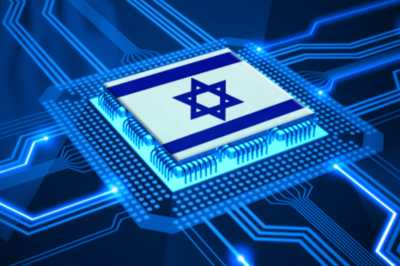Advanced Surveillance Technologies is playing a significant role in the Israel and Palestine conflicts. The Israeli forces employ a range of cutting-edge monitoring devices for monitoring Palestinian populations. These include technologies of facial recognition, communications monitoring, and AI-powered analytics. For instance, in the past, the Israeli Defense Forces had to imbue AI into surveillance structures that track people throughout the West Bank and Gaza Strip. Such systems build large databases of personal information about Palestinians without their consent, consequently grossly violating their right to privacy.
And if we see in the Military Context so, the Israeli military utilizes technology to make informed decisions about its use of force in Gaza. For instance, it uses mobile phone tracking to monitor the movement of civilians, and AI systems such as “The Gospel” and “Lavender” for target lists as produced by algorithms to classify individuals according to how much danger they pose. Such systems have been criticized for using wrongful data. This creates an issue of compliance with international humanitarian law.
Automation in Warfare
AI-Enhanced Military Strategies
AI is increasingly being applied in warfare today. Israelis have developed autonomous weapons that can autonomously pick targets with the help of only minimal amounts of human interference. News tabloids say these systems are deployed for airstrikes, relying solely on intelligence gathered through surveillance technologies, thereby giving a very high chance of massive civilian casualty due to error-prone algorithms.
Technology Testing Ground
Many viewed Gaza as a testing ground for the newest military technologies. Israel’s military campaigns often succeed in achieving tactical objectives and promoting the introduction of new high-tech products into foreign markets. A trend that raises ethical questions concerning the exploitation of warfare to advance technologies and market advanced weapons of war has emerged.
Also Read: Pakistan hosts SCO- Advancing regional cooperation, security
Effects on Civilian Life
Technological applications have also resulted in civilian casualties on a mass scale. According to reports, Israeli forces used AI systems in their targeting processes that could not distinguish between combatants and non-combatants. Critics describe the process as highly violent, besides undermining the efforts in place for the peaceful resolution of the conflict.
Social networking media have also been accused of this process. Israeli forces have reportedly used data from companies such as WhatsApp to determine who to attack based on their activities online. The distinction between civilian life and war is even more ambiguous in such situations.
These technologies have resulted in higher civilian casualties and the destruction of infrastructure. Human Rights Watch confirmed that over 40,000 people have died in Gaza since the outbreak of hostilities in October 2023, with the majority of civilian homes and large parts of infrastructure badly damaged or destroyed. The use of such flawed digital tools also relates to breaches of international humanitarian law protection for civilians in armed conflict.
Conclusion
Technology has significantly impacted the Israel-Palestine conflict based on surveillance capabilities and how machines can employ automated strategies in warfare. The technologies are observed as securing tools, but, in reality, they lead to grave human rights violations, creating untold difficulties for a lasting peace to be reached in this deeply entrenched struggle. Also, reliance on technological solutions without due political solutions calls into question the ultimate future of conflict resolution.
Author Tania Jaffri is a student of BS International Relations from the National University of Modern Languages (NUML) Rawalpindi.








